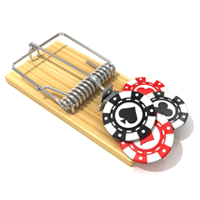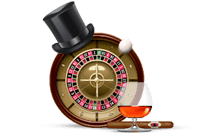Getting A Grip On Problem Gambling
 Australia's gambling reputation is world-renowned. But while government statistics show that most Aussies treat gambling as entertainment in a responsible way, they also reveal that one in six regular pokey players are seriously addicted to gambling.
Australia's gambling reputation is world-renowned. But while government statistics show that most Aussies treat gambling as entertainment in a responsible way, they also reveal that one in six regular pokey players are seriously addicted to gambling.
The news is particularly disturbing in the 18-24 year-old group, the largest gambling age group. Young people in that group often report that their issues stem back to gambling in their teenage years. 75% of that group with gambling problems are primarily addicted to pokies. But it's even worse for females, where it's more like 90%. Overall, problem gamblers lose $21,000 per year on average, a third of the average salary in Australia.
But it's not just about money. Collateral damage to friends, family, and society in general manifests in a variety of ways, including but not limited to:
- Reduced work ethic and performance
- Relationship degradation and destruction
- Mental health issues
- Passing unhealthy gambling attitudes and habits on to children
And of course those with the deepest problems tend to be those least able to recognise them.
Identifying the Problem
 Signs of a gambling problem manifest in a number of key areas. Knowing them puts you in a better position to determine whether you or someone else is afflicted, and do something meaningful about it.
Signs of a gambling problem manifest in a number of key areas. Knowing them puts you in a better position to determine whether you or someone else is afflicted, and do something meaningful about it.
Psychologically, problem gamblers are more likely to demonstrate symptoms like tension and anxiety, as well as depression about finances. That can lead to tempers flaring and moods swinging over otherwise minor life circumstances. People who once saw both wins and losses as a normal part of gambling as entertainment take specific losses far too seriously, to the point of hardly remembering wins that were once cherished.
You can expect a lot of denial from the addicted, and not always in the most obvious ways. Short of explicitly stated denial, more creative forms include minimising the time they've spent gambling or the magnitude of losses. Compounded guilt might show indirectly in passive aggression or foolish carelessness. Attempts to suppress the guilt and denial can set up internal conditions that favour explosive outbursts and rage. Relationships with friends, family, and co-workers are bound to suffer under these conditions.
The most obvious signs appear in relation to finances. Money is somehow always in short supply. What can begin as secondary employment to subsidise the habit can branch out into wagers beyond their means, unnecessary credit applications, inordinate borrowing, and theft. Bills and other forms of harassment from creditors accumulate. And of course these poor souls must conduct as much of this campaign in secrecy to avoid the kind of detection that would force them to admit they have a problem.
Overall, it's a vicious downward spiral of character transformation that you don't want proceeding to rock bottom.
How to Get Help
 Battling the insidious psychological factors of someone with a gambling problem can be challenging, as they serve to confirm a distorted reality and the suspicion that others are conspiring against them. Getting someone to recognise the possibility they're in trouble is the most important first step.
Battling the insidious psychological factors of someone with a gambling problem can be challenging, as they serve to confirm a distorted reality and the suspicion that others are conspiring against them. Getting someone to recognise the possibility they're in trouble is the most important first step.
But there's plenty of help to take that first step, and then acknowledge it truly is a problem. Neither you nor the problem gambler are alone, a realisation also critical to success. Your attitude of support, understanding, and patience can significantly affect the outcome.
The Australian Government's Problem Gambling website is the best starting point to for all the fact and figures, help strategies, and pointers to professional help:
http://www.problemgambling.gov.au/
While we've summarised key items of the impact of problem gambling on Australia, the details and the breadth of the issues might surprise you. The more you know, the better equipped you'll be to take this personal and social threat as seriously as you should. This website isn't afraid to call a pokie a pokie!
Probably the best feature of the website is its Resource Kit tab. Clicking on it brings you to a downloadable document entitled "Help for Family and Friends", which contains everything you should know to be as effective as possible when helping others in their time of need.
The Resource Kit tab is also chocked full of links to professional state and territory resources, plus research and other data. Finally, it has video testimonials from both problem gamblers and people who've succeeded in helping problem gamblers. They're the kind of first-hand insights that really drive home how real the problems are, and how it's truly possible to help others win the battle.
There's no time to waste, because lives are at stake. Get the information you need, and take the appropriate action now before any damage becomes irreparable.



